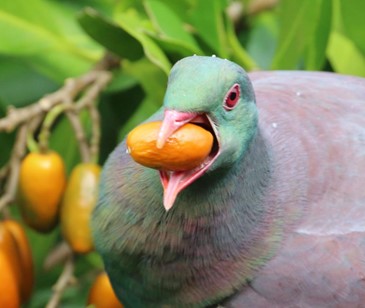Journal/
conference: New Zealand Journal of Ecology
conference: New Zealand Journal of Ecology
Research:Paper
Organisation/s:
Department of Conservation, Wellington After Hours Veterinary Clinic, Wellington City Council, Zealandia Te Māra a Tāne, Massey University, Museum of New Zealand Te Papa Tongarewa
Funder:
Ōtari-Wilton’s Bush, Wellington City Council, and Zealandia Te Māra a Tāne organised the Zealandia wānanga.



 New Zealand; Pacific
New Zealand; Pacific


